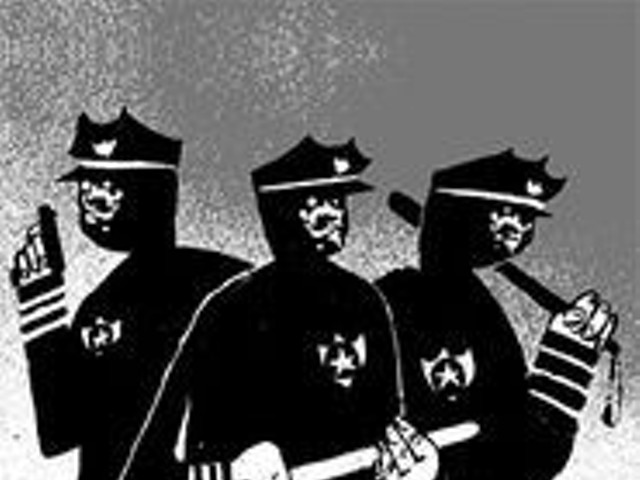Jack Titone, SLU's public-safety director, declined to discuss the changes in his department. In an e-mail, university spokesman Clayton Berry offers the following explanation: "The upgrade is in keeping with the department's overriding mission to make the campus as safe as possible for students, faculty, staff and visitors, and to ensure that all of its officers, who are first responders during a campus emergency, are as well-trained and well-prepared as possible."
According to crime reports, SLU already boasts the safest university campus in St. Louis, with fewer assaults, burglaries and car thefts — the most common campus crimes — than Washington University and the University of Missouri-St. Louis. Nonetheless, SLU has had the new procedures on deck for several years, long before a gunman killed 32 people in April at Virginia Tech.
SLU's security officers attend fourteen hours of training and are licensed by the St. Louis Metropolitan Police Department. (The staffs at Wash. U. and UMSL are mostly commissioned police officers with diplomas from the city or county police academy.) In the past, SLU armed half of its force after sending them to an additional seven hours of training.
Last winter, as a condition of carrying a weapon, SLU began dispatching its unarmed officers to a Florissant psychologist for a psychological exam. The test is standard procedure for commissioned law enforcement agencies. The 800-question written exam, according to participants, includes such questions as: "Have you ever wanted to wear women's clothing?" "Did you ever want to be a florist?" "Have you ever wanted to kill your boss?" and "Have you ever had sex with small animals?" Employees who failed the test were fired. Those who passed received an increase in pay, which ranges from $12.75 to $20.41 an hour.
"I love the university, it's my whole life," laments one veteran with almost two decades' experience at SLU. According to the officer, who asked not to be named, the fact that SLU has not yet sent the previously armed officers for psychological testing is a sore spot among those dropped from the rolls. Clayton Berry says he is unsure when the exams will take place.
SLU's new fitness policy calls for every officer to annually complete an obstacle course in four minutes and eight seconds. The test — the same one implemented at the city police department in January 2006 — includes running 500 yards, jumping hurdles, walking a balance beam and dragging a 150-pound dummy. But first, SLU officers must pass a doctor's physical. Anyone who fails the physical or the fitness test cannot return to work, but may retake both components within 90 days. At the end of that time, the officer is terminated if he hasn't passed. "Officers who refuse to take the fitness test after formal notification of the prescribed timeline are considered as having failed the test, and will be terminated from Saint Louis University," the policy states. (The police department's policy is essentially the same.)
In January 2007 all officers were given free memberships at a campus recreation center. In April they were officially notified of the new rule and testing began the next month. It is unclear how many employees have been shown the door. At least a dozen current and former officers are bitter over what they believe is a heartless house-cleaning.
"A lot of the people they hired over the years were retired police officers — people in their 50s or 60s — or they were overweight, people who weighed 300 pounds," complains Pat Kistner, a fourteen-year veteran who passed the fitness test but quit in July. "We had one gentleman who was there for 33 years — who had diabetes — and they sent him to their doctor for a physical. The doctor said, 'I can't release you to do an obstacle course.' But a week before that the man could have gone out there on the street and lost his life for the university and no one cared." Some officers, meanwhile, are filing complaints with the Equal Employment Opportunity Commission or consulting attorneys. Others are looking for new jobs.
Bill Hargas, an ex-cop who put in six years at SLU before recently retiring, says he wishes the fitness guidelines could have been adjusted for different ages. "I'm all in favor of both tests and a wellness program," says Hargas, "but I feel bad for a lot of these guys who've been there a long time, have a ton of experience and no pensions."





